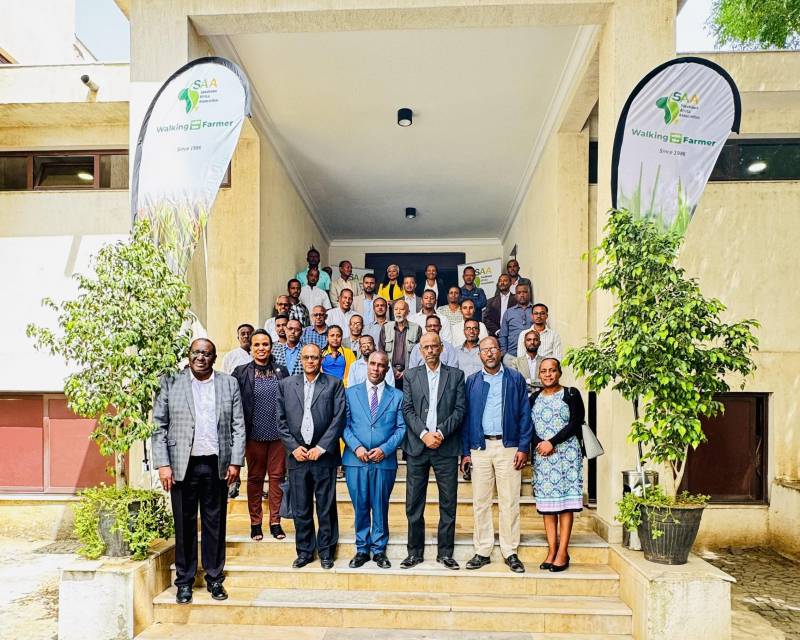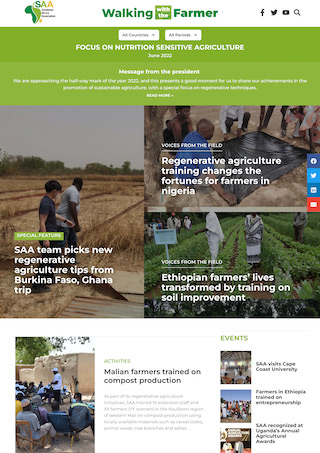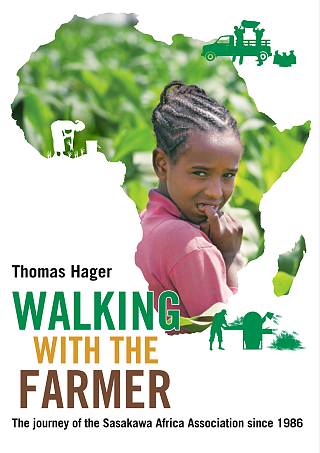SAA Ethiopia Hosts High-level Stakeholders Workshop on Harnessing Local Agricultural Inputs

Crop production in Ethiopia relies heavily on external inputs such as seeds, fertilizers, and crop protection chemicals. However, limited availability and rising costs of agrochemicals, particularly synthetic fertilizers, due to global tensions like Russia-Ukraine conflict and maritime transport impediments, have made these inputs harder to obtain and use. Additionally, there are growing concerns about environmental and health risks associated with external inputs.
As a result, boosting local agricultural input production and utilization is becoming critical. Strengthening local sourcing of agricultural production inputs is important for various reasons: reducing dependency on distant suppliers and mitigating risks associated with global supply chains, stimulating the local economy by creating job opportunities and supporting local businesses; ensuring better quality control and traceability of products; and fostering stronger community ties and a shared sense of purpose, thereby enhancing agricultural production.
Cognizant of this, the Sasakawa Africa Association (SAA) Ethiopia Office chose local inputs as the topic of its 2024 high-level stakeholder workshop. The workshop, titled "Harnessing local agricultural inputs for sustainable production, commercialization, and utilization" was held on May 31, 2024 in Adama. It was attended by representatives from the government, private sector, universities, research institutes, NGOs, media, and other organizations. The event featured several presentations and discussions on topics such as strengthening local inputs through regenerative agriculture, vermicompost production and supply, biochar technology usage, organic input production innovation, and push-pull technology.
In his welcoming remark, Dr. Fentahun Mengistu, the Country Director of SAA-Ethiopia, emphasized the importance of recognizing that Ethiopian farmers traditionally relied on natural inputs to fertilize their soils before the country began importing agro-inputs in the 1960s. He pointed out that using local input is not a new concept. He also highlighted the current minimal usage of external inputs such as seeds, fertilizers, and pesticides, stressing the need to increase their usage to an optimal level while also incorporating local inputs through Integrated Soil Fertility Management (ISFM) approach. The use of local organic inputs will not only reduce the cost of agricultural production but also help address import challenges, save foreign currency, and generate employment opportunities for the growing youth population. Therefore, it is essential to develop the capacity to produce these inputs locally at both the farmer and industrial levels, establish a robust distribution system, and enhance their utilization on farms.

Dr. Fentahun Mengistu giving his opening remarks
Dr. Mel Oluouch, Director of Strategic Partnership Office (SPO) SAA, emphasized in his keynote speech the importance of using traditional knowledge and farming practices that have been proven effective across generations. He also stressed the need to involve local communities in decision-making processes and knowledge sharing.

Dr. Mel Oluouch giving his keynote speech
Ato (Mr.) Abdusemed Abdo, representing the State Minister for Agriculture and Horticulture at the Ministry of Agriculture, stressed during his official opening that importing agro-inputs will not sustain agricultural development. He further mentioned the need to expedite the delayed construction of local fertilizer and lime manufacturing industries and enhance the utilization of local inputs to address issues like soil fertility decline and meet farmers’ needs for adequate agro-inputs.

Ato (Mr.) Abdusemed Abdo giving his official opening
SAA Publications

E-newsletter
"Walking with the Farmer"
SAA publishes a bimonthly e-newsletter reporting on SAA activities.

SAA history book
"Walking with the Farmer: The journey of the Sasakawa Africa Assoication since 1986"
This book chronicles the history of SAA from its inception to the present.

Annual Report
Annual Report FY2023
Annual Report FY2023 is available here.




